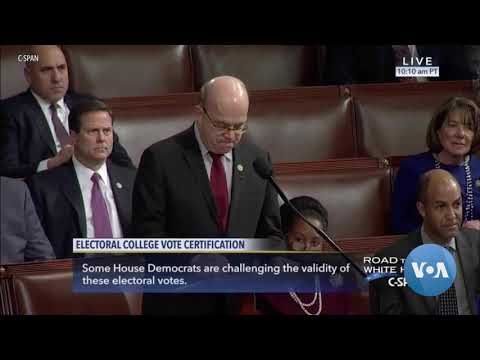WASHINGTON, D.C. – This Wednesday, January 6, Congress will gather to tally the Electoral College votes cast last month and officially certify the win of President-elect Joe Biden over incumbent Donald Trump. It’s a time-honored tradition – required by the Constitution and considered the final step in sealing a presidential win – and functions more as ceremonial gesture than anything else. On average, the process takes well under an hour.
However, this year will be slightly different. According to reports, at least 12 GOP senators and over 100 Republican members of Congress are planning to publicly object to electoral votes originally cast in several key battleground states where President Trump has alleged widespread voter fraud caused his loss; allegations that have been dismissed in dozens of court cases filed by Trump’s legal team since the November 2020 election.
But objecting to the results on January 6 will ultimately not change the outcome of the election; it will merely prolong the certification process – possibly into an all-nighter – by forcing opposing parties to debate and vote on any objection. Any vote is doomed to fail for Republicans since Democrats still hold the majority in Congress and have all the votes they need to kick every challenge to the curb.
Despite the seriousness of this situation and the way it’s being portrayed in the media, this is also hardly the first time it’s happened, and it will likely be as ineffective as every other attempt made in recent history to object to a certain presidential candidate’s electoral votes.
Democrats objected to the results of the 2000 and 2004 elections in which Republican George W. Bush prevailed, and there were also seven dissenters for Trump in 2016. Those attempts to challenge the results of electoral votes, while constitutionally valid, ultimately changed nothing; the same result is expected to happen on Wednesday leading to President-elect Joe Biden being inaugurated on January 20.




Comments are closed.